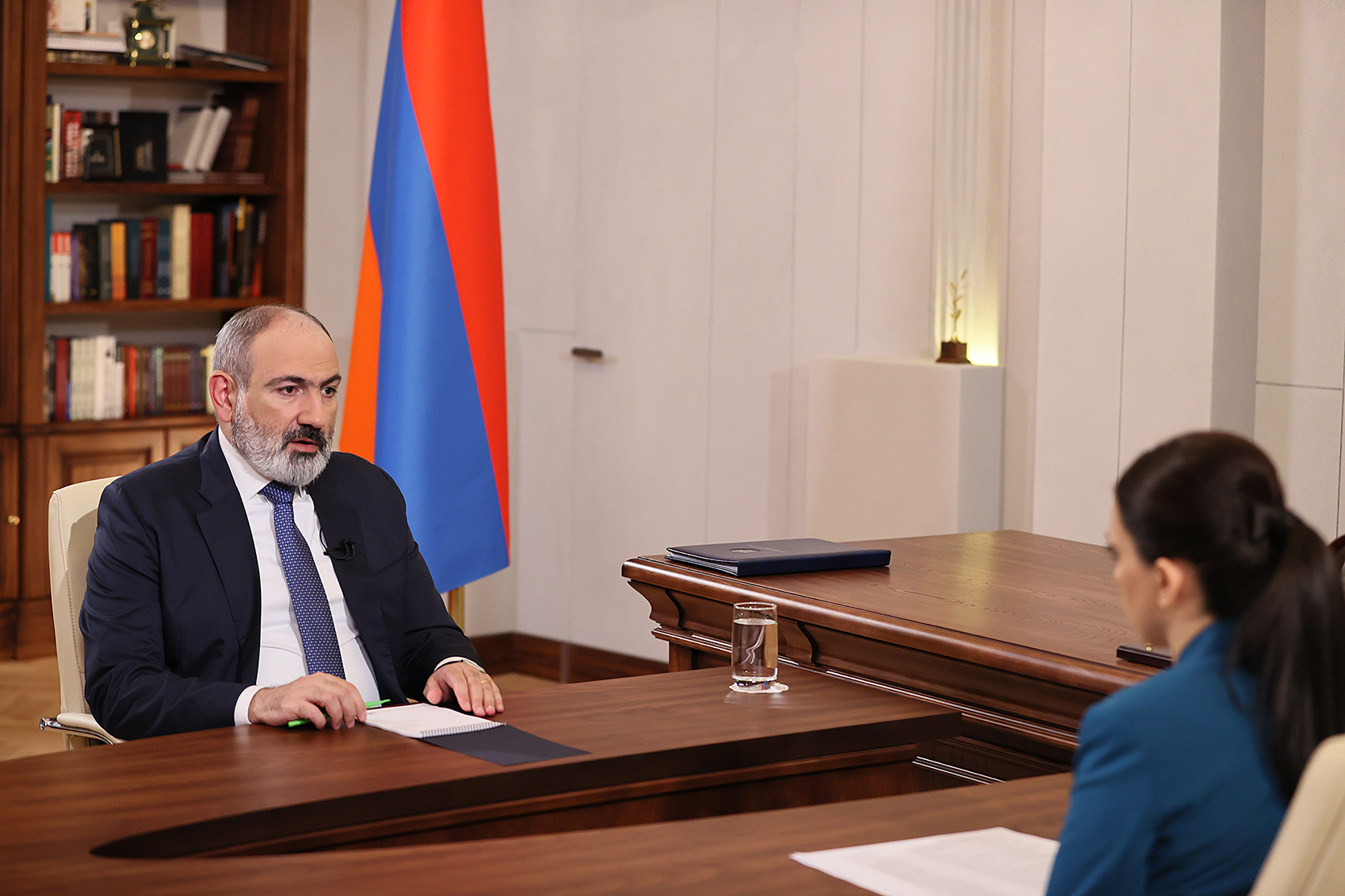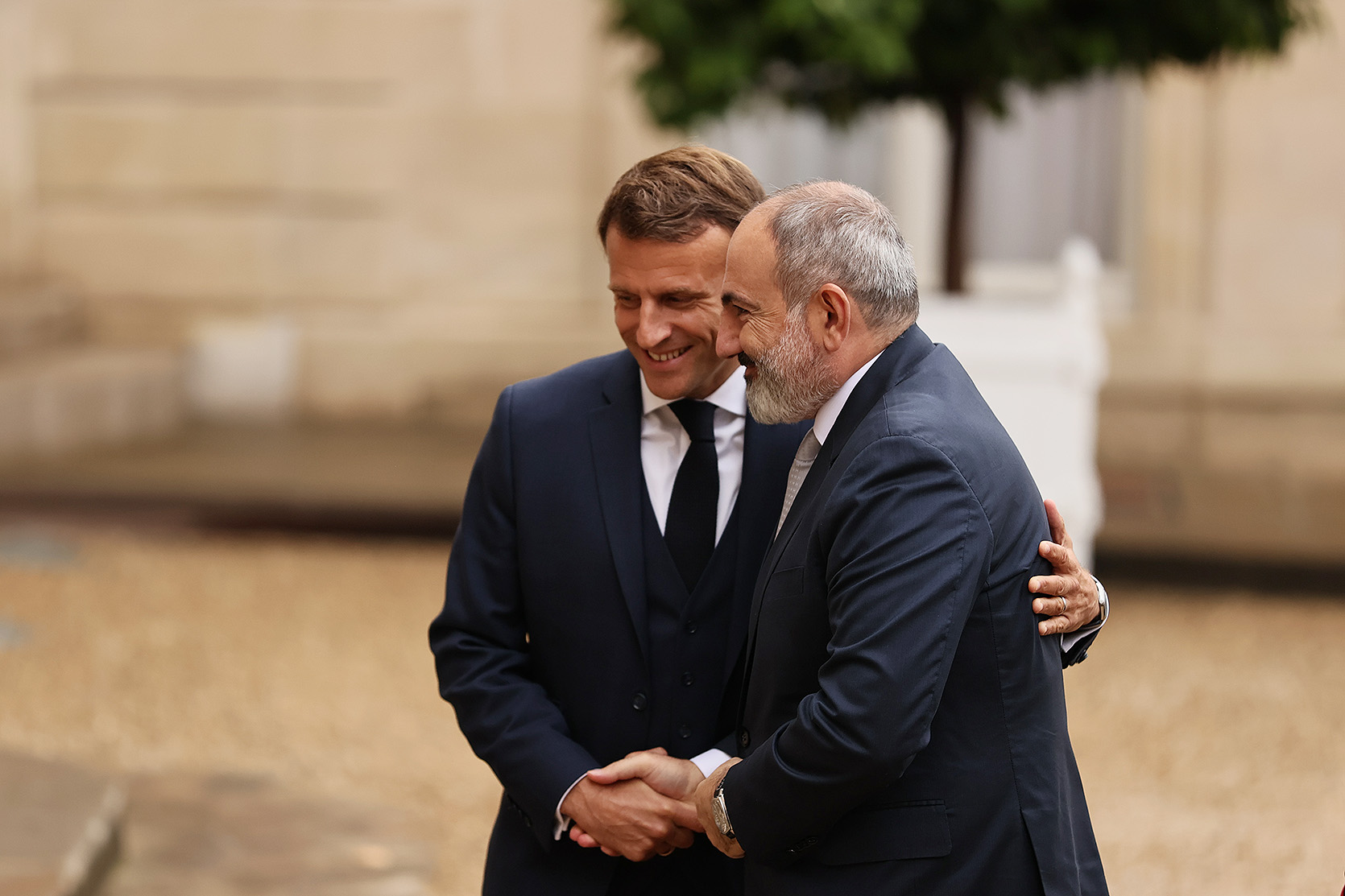"Painful concessions await Armenia, no matter who moderates negotiations." Opinion
Western mediators and Russia’s reaction
Russia delivered strongly-worded statements after the Pashinyan-Aliyev meeting in Prague. Foreign Ministry spokeswoman Maria Zakharova said that some Western mediators “cannot even be called peace mediators.” She announced that Moscow had sent proposals to Yerevan and Baku to conclude a peace treaty, and stressed tht “[w]e are not engaged in some kind of special advertising activity, behind which there is nothing.”
The opinion of political scientist Suren Surenyants on the confrontation between Russia and the West in the context of the resolution of Armenian-Azerbaijani relations.
On October 6, Armenian Prime Minister Nikol Pashinyan and Azerbaijani President Ilham Aliyev held talks in Prague through the mediation of European Council President Charles Michel and French President Emmanuel Macron. Afterwrd a statement was adopted in which Azerbaijan and Armenia mutually recognized each other’s territorial integrity. Armenia agreed to the deployment of an EU civilian mission along the border with Azerbaijan.
- Will the Prague statement create peace between Armenia and Azerbaijan? News and analysis from Yerevan and Baku
- Azerbaijan and Armenia recognize each other’s territorial integrity
“Western approaches to a peace agreement are not quite balanced”
During her latest briefing, Russian Foreign Ministry spokeswoman Maria Zakharova said that Moscow is providing comprehensive support for the normalization of relations between the two allied states, including the preparation of a peace treaty:
“Moscow deliveredcomprehensive proposals to Baku and Yerevan on concluding a peace treaty between Azerbaijan and Armenia.”
Special representative of the Russian Foreign Ministry, Igor Khovaev, according to Zakharova, visited the region in September to hold consultations on this issue.
Zakharova announced that Russia is engaged in practical work and talks only about what has already been done. Moreover, the Russian Federation does not consider it inappropriate to comment on the details of the negotiations, “taking into account the sensitivity of the subject matter of the peace treaty.”
In response to a question about how Russia views the prospect of a peace treaty between Armenia and Azerbaijan through the mediation of Brussels, Zakharova said that Russia is “against geopolitical intrigues that lead to a dangerous disruption of the situation.”
“We are always ready to support efforts that lead to tangible results, stabilization of the situation, and therefore we play an intermediary role. As for Western approaches to the peace agreement between Azerbaijan and Armenia, in our opinion they do not seem to be quite balanced. And, to be honest, I don’t even want to talk about the role of some Western mediators, because it’s impossible to call them peace mediators.”
Comment
Political scientist Suren Surenyants considers Zakharova’s words to be quite transparent.
“They concerned Western mediation platforms – both the European Union and the United States. It is also obvious that Zakharova’s main target was the so-called EU civilian mission along the border between Armenia and Azerbaijan, about which there is a point in the Prague statement,” Surenyants told JAMnews.
According to the political scientist, in the context of the confrontation between Russia and the West, one should not have expected anything else. He believes that we will not see consolidated international efforts:
“Moscow proposes to regulate Armenian-Azerbaijani relations, but not to discuss the status of Nagorno-Karabakh for the time being. Western nations offer a comprehensive, comprehensive solution to Armenian-Azerbaijani relations, including the Nagorno-Karabakh problem. According to the calculations of Western partners, if this problem is solved, there will be no need for Russian peacekeepers anymore.”
The expert believes that there is indeed competition between intermediary platforms, which creates “new security risks”:
“If international efforts are not consolidated, then we can expect a clash of efforts of different powers and, accordingly, the loss of their effectiveness.”
According to Surenyants, Armenia is trying to maneuver, to take advantage of various opportunities, but it is necessary to be very careful so that the country does not find itself the “epicenter of a conflict between different geopolitical players”:
“Armenia should try to combine the interests of different players and harmonize them with our agenda.”
Surenyants is not sure if this will succeed. The success of the process is depends on the following circumstances:
- how professional Armenian diplomacy is,
- how realistic Armenia’s agenda is,
- what kind of diplomatic environment will develop around Armenia.
“It is only obvious that in any case, no matter what mediation platform takes on the role of moderator of the negotiations, unpopular, non-standard, painful concessions await us,” Surenyants emphasized.
According to him, such concessions are “more than obvious” on the Nagorno-Karabakh issue, but there will be others:
“Problems may also arise in the process of delimitation and demarcation of the border. If the status quo of 1991 is taken as a basis, then the question of enclaves will also arise. In the end, there is no agreement on the issue of unblocking regional roads. Armenia needs to be very flexible in order to manage all these risks.”
Western mediators and Russia’s reaction




















